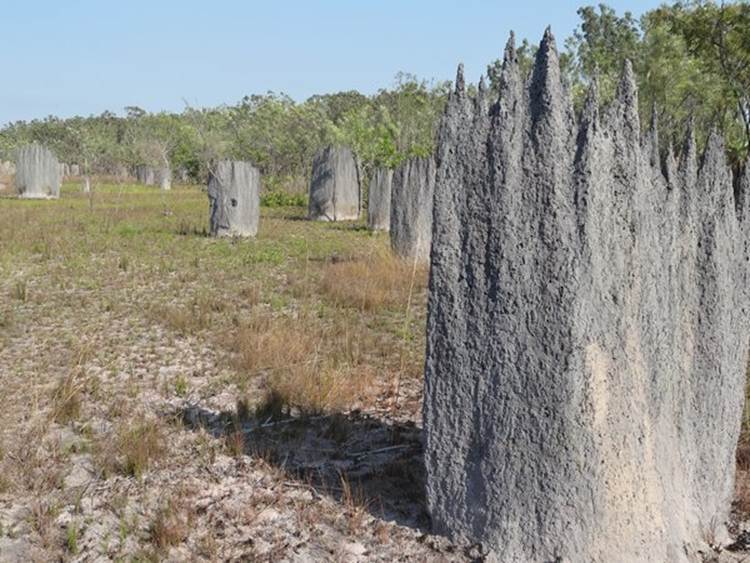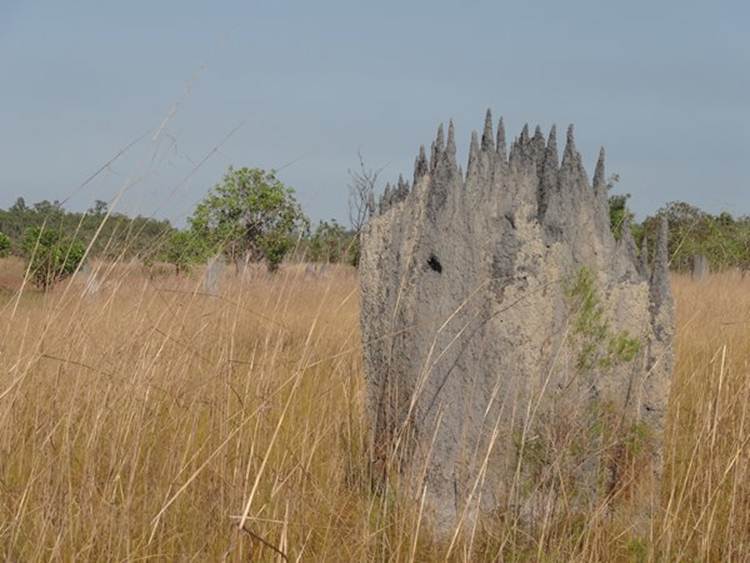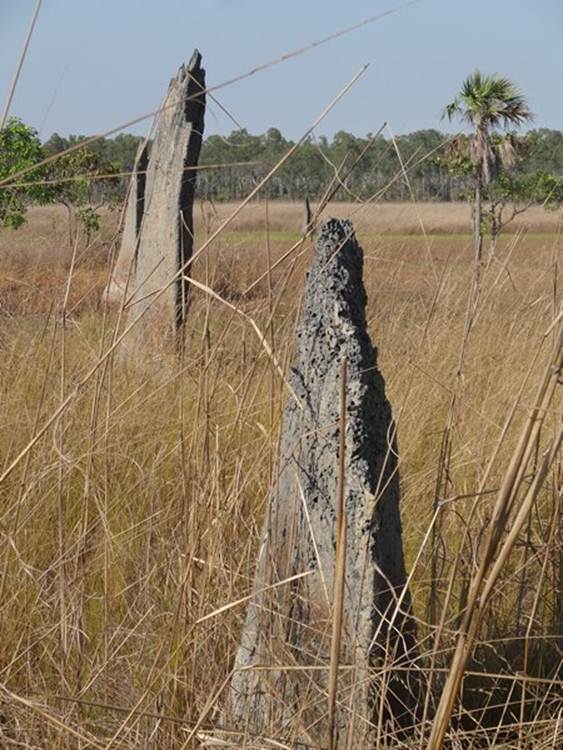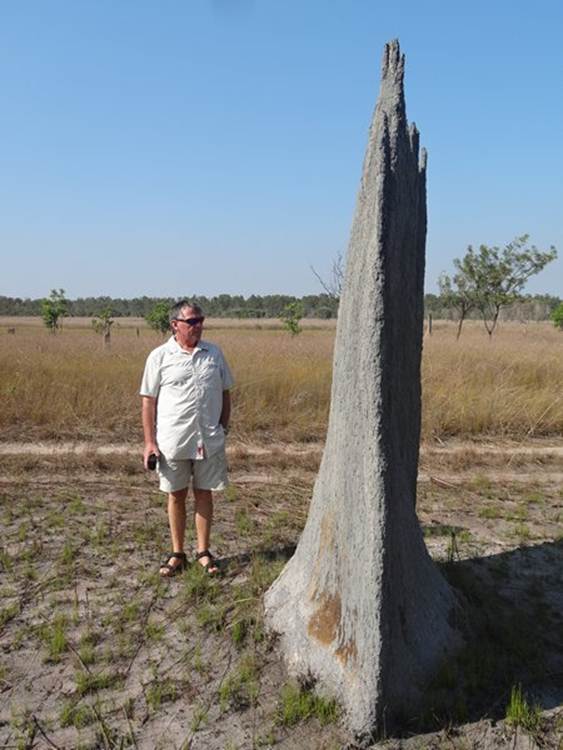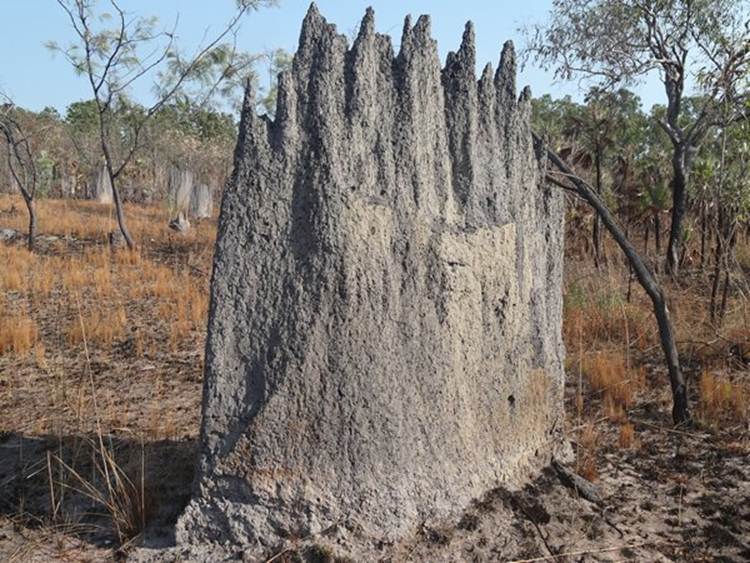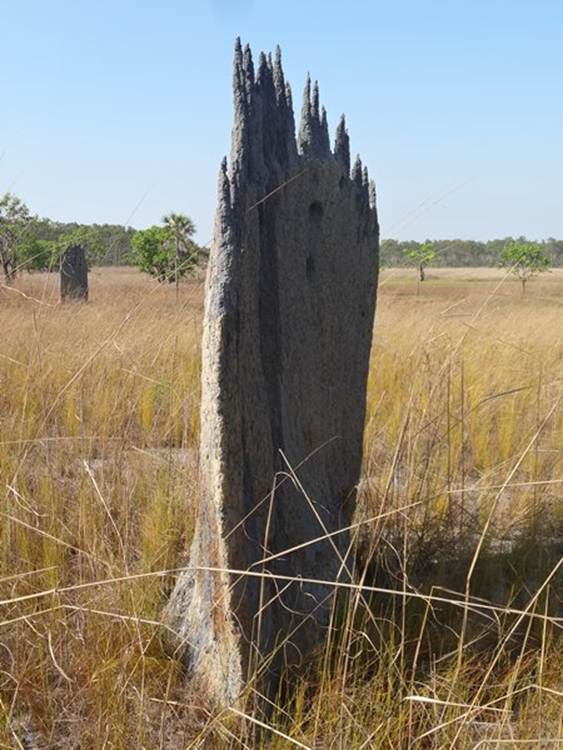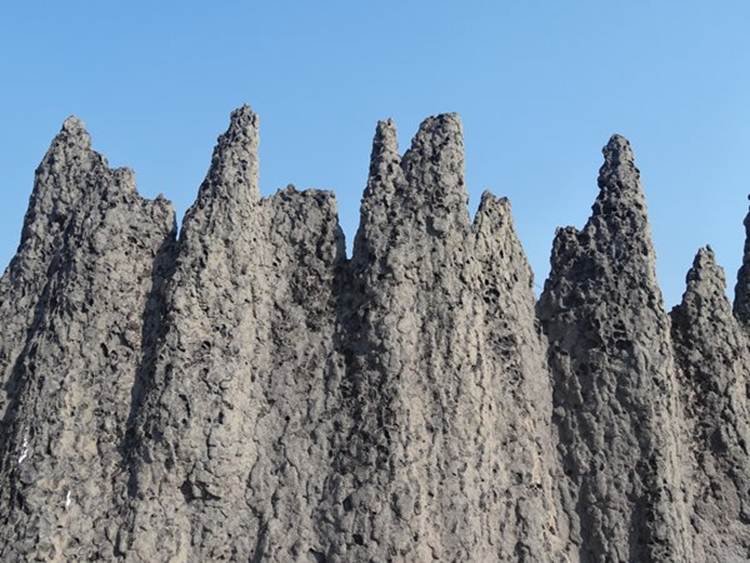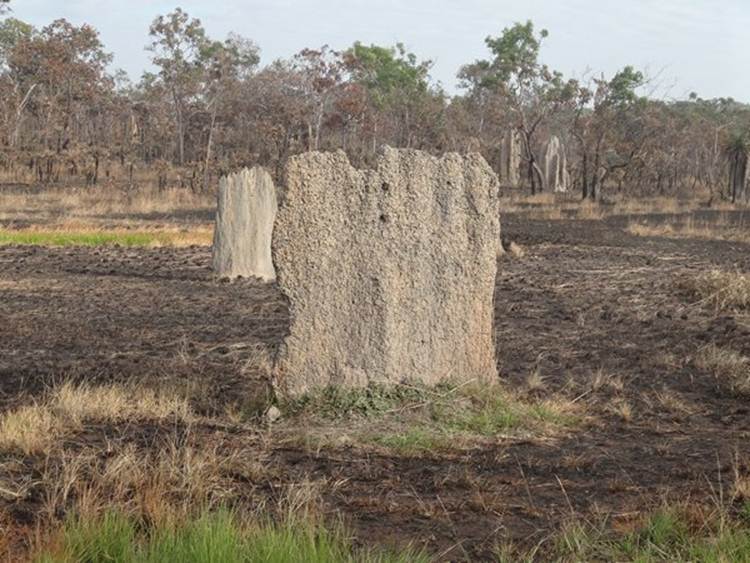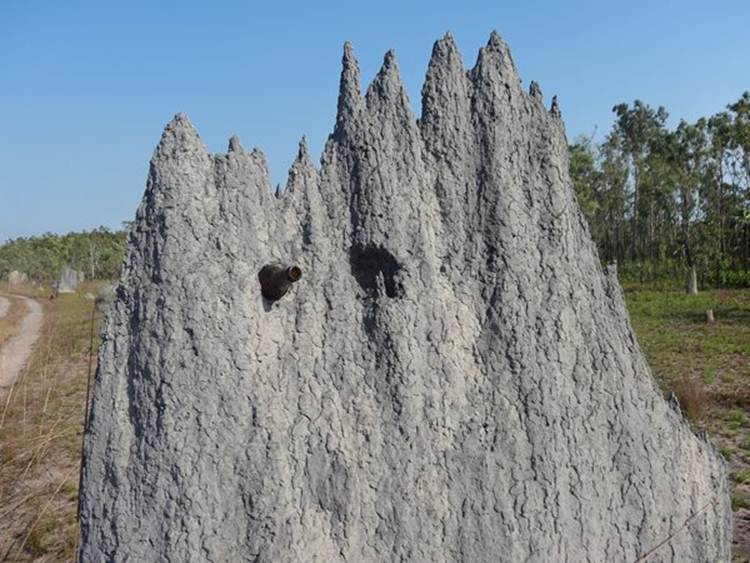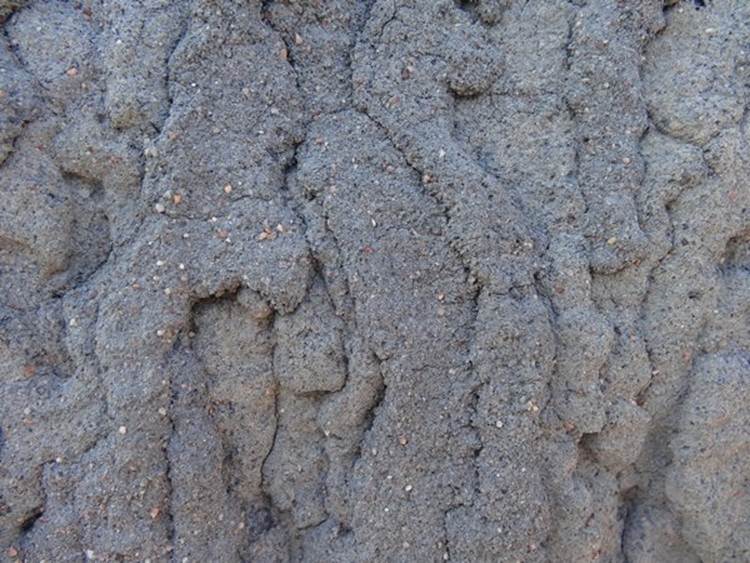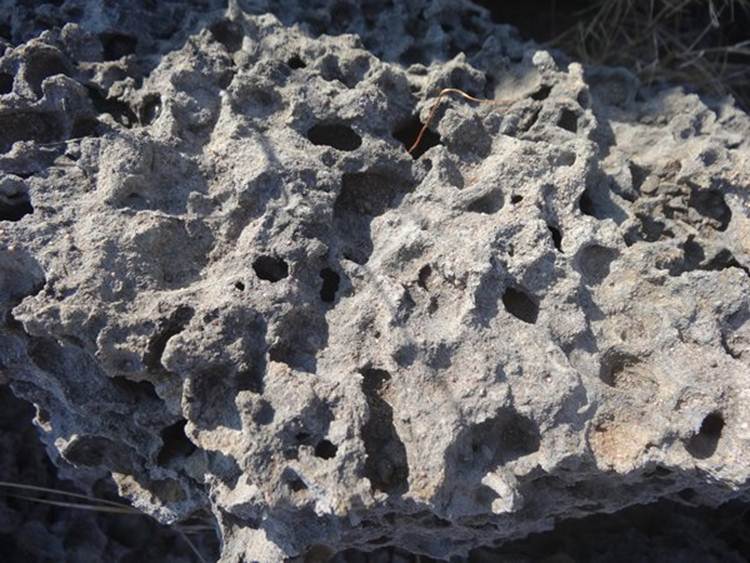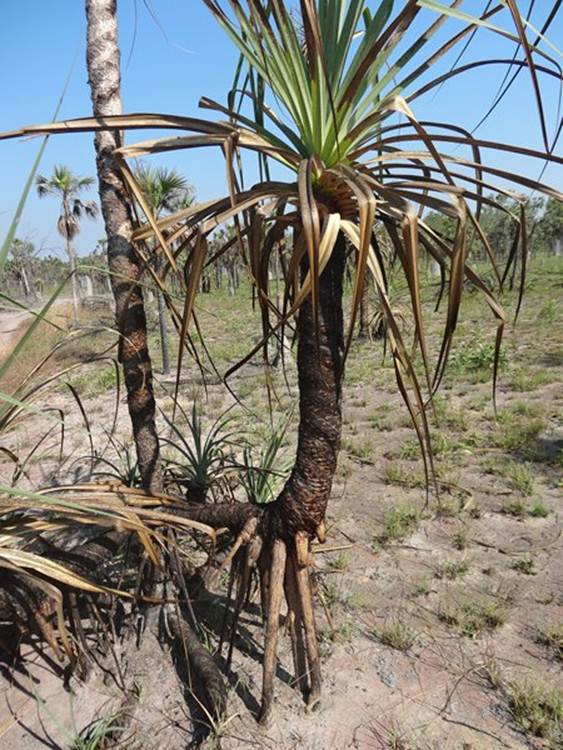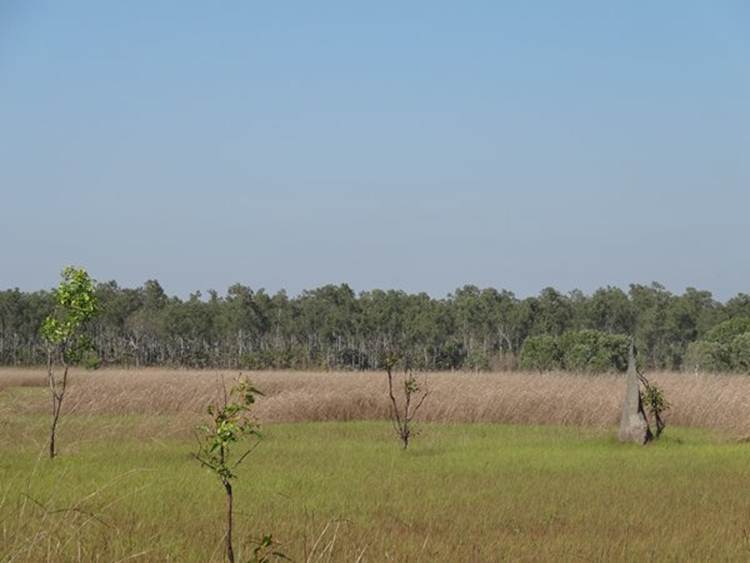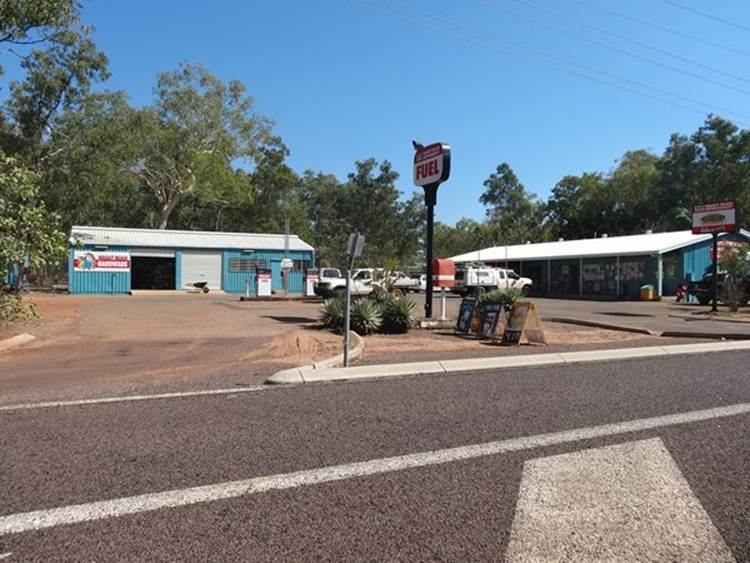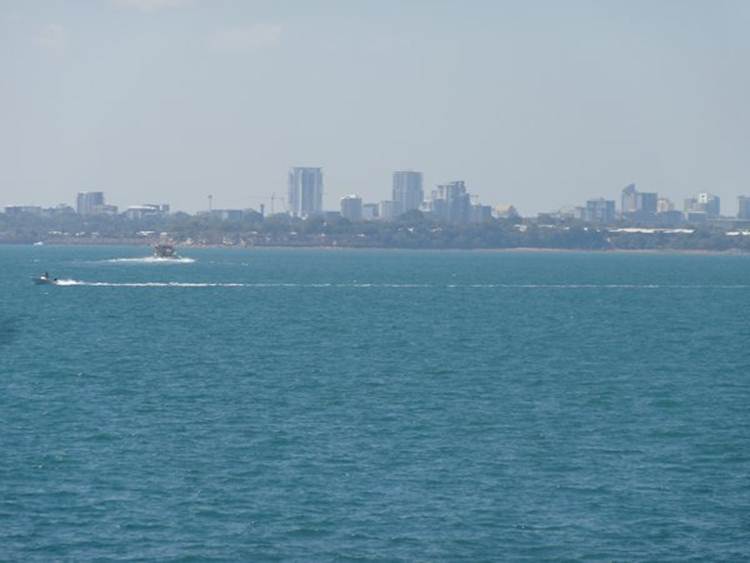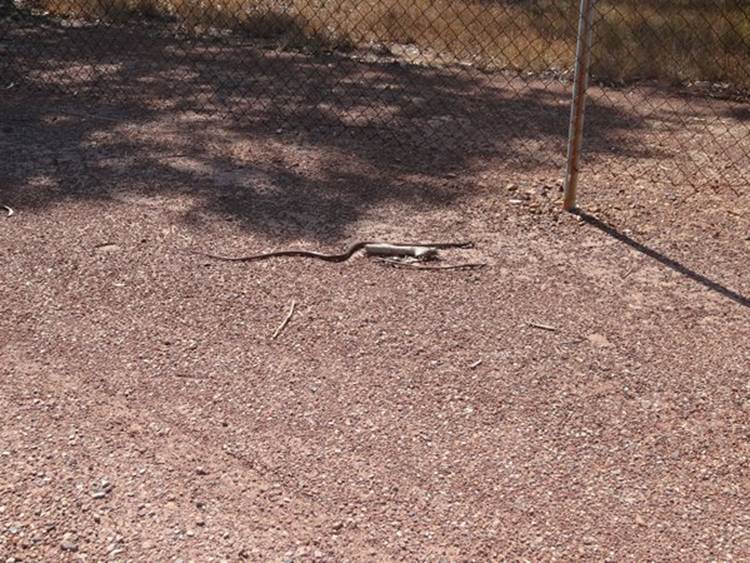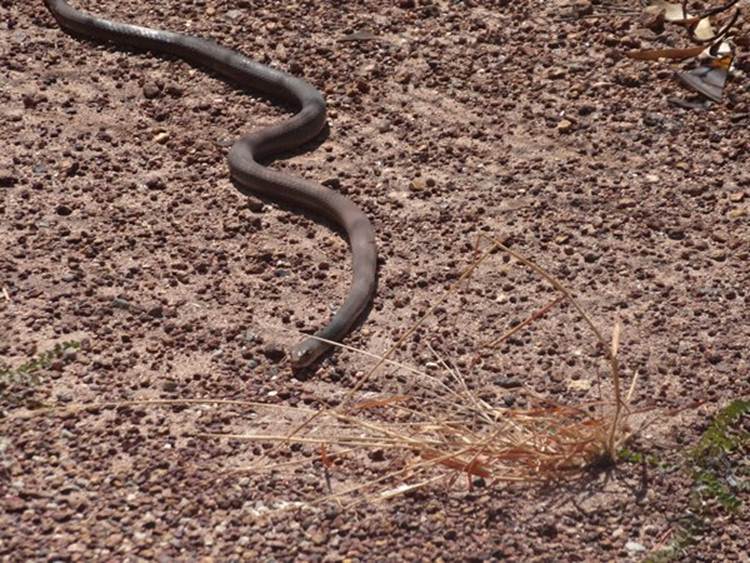Tumbling Waters - Magnetic termite mounds and a snake

Position 12 46.4S 130 56.89E So we are staying at the Tumbling Waters Caravan Park or is it Holiday Park. Who cares. The lady at the camp site told us about these magnetic termite mounds near Mandorah – 65 km away from our present location. Not signposted at all but we managed to find them – follow the track at pylon No 54. Magnetic termite (Amitermes meridionalis) only build their nests on flooded black soil plains. We saw these in Litchfield National Park but you couldn’t get close enough for a really good photograph. We could get really close to these.
Lots more visible through the spear grass.
The nests are always aligned in a N-S direction and so the termites have an inbuilt compass. This has been confirmed by tests where scientists have altered the direction of the earth’s magnetic field and the termites built repairs to their nests in the new compass alignment.
Termites are very susceptible to desiccation and the magnetic termites live in a particularly harsh environment. Baking temperatures during the day, freezing at night, flooding and lots of water in the wet season. The mounds help solve these problems. Lots of termites can bury themselves underground but this isn’t an option for these termites. Their structure keeps them well above the water table. Food stores are kept near the top part of the mount, where it is well ventilated. The N-S orientation helps maintain a constant temperature and humidity, one side gets the heat, the other the shade and the passageways vent the heat around. Really thin in the N-S direction
But biggest surface area is in the west and east
These ones are curled slightly inwards on one side.
The crenulations at the top.
Some of these had perfectly spherical holes in them. Thinking additional ventilation, help the current go through when flooded.
Nope, beer bottles.
You can just about make out the muddy cement like dribbles on the outside of the structures.
The mounds are really hard, people used to use them as floors – smashed up ones that is. These holes are presumably ventilation shafts.
This pandanus roots are well above ground as the soil has gradually been washed away during the wet season floods.
The road went over wetlands – you can see the grass is still green and lush here.
This is Mandorah town centre. This is typical of a lot of towns out here, sometimes just a store or a pub in the middle of nowhere.
Mandorah is by the sea, that which we have not seen for about two months now. Lovely sight. Darwin in the distance.
We stopped at pub for a bite to eat and on the way out Paul spotted this brown snake on the road.
Wriggling towards us.
|
